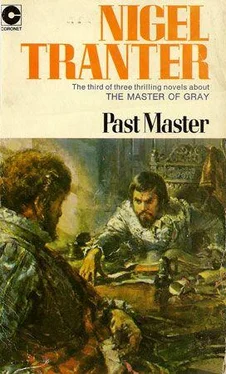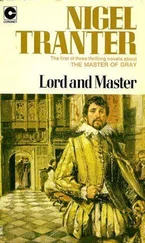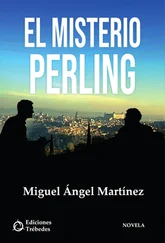Nigel Tranter - Past Master
Здесь есть возможность читать онлайн «Nigel Tranter - Past Master» весь текст электронной книги совершенно бесплатно (целиком полную версию без сокращений). В некоторых случаях можно слушать аудио, скачать через торрент в формате fb2 и присутствует краткое содержание. Жанр: Исторические приключения, на английском языке. Описание произведения, (предисловие) а так же отзывы посетителей доступны на портале библиотеки ЛибКат.
- Название:Past Master
- Автор:
- Жанр:
- Год:неизвестен
- ISBN:нет данных
- Рейтинг книги:5 / 5. Голосов: 1
-
Избранное:Добавить в избранное
- Отзывы:
-
Ваша оценка:
- 100
- 1
- 2
- 3
- 4
- 5
Past Master: краткое содержание, описание и аннотация
Предлагаем к чтению аннотацию, описание, краткое содержание или предисловие (зависит от того, что написал сам автор книги «Past Master»). Если вы не нашли необходимую информацию о книге — напишите в комментариях, мы постараемся отыскать её.
Past Master — читать онлайн бесплатно полную книгу (весь текст) целиком
Ниже представлен текст книги, разбитый по страницам. Система сохранения места последней прочитанной страницы, позволяет с удобством читать онлайн бесплатно книгу «Past Master», без необходимости каждый раз заново искать на чём Вы остановились. Поставьте закладку, и сможете в любой момент перейти на страницу, на которой закончили чтение.
Интервал:
Закладка:
Now, turning in the saddle and gazing back eastwards and southwards over the splendid landscape which sank, in the golden October sunlight, in great rolling waves of tilth and pasture, moor and thicket and woodland, between Dee and Don, to the level plain of the distant, unseen sea, Ludovick stared, set-faced. From on high here, the fair land seemed to spout smoke-like eruptions from underground fires. There were the dense black clouds of new-burning brushwood and thatch; the brown reek of hay and straw; the murky billows, shot with red, of mixed conflagration well alight; and the pale blue of old fires, burning low. All these smokes drifted on the south-westerly breeze to mingle and form a pall of solid grey that hung like a curtain for endless miles, as though to hide the shame of the land. Directly behind themselves, the fires did not start for perhaps five or six miles – though even so, it meant that the main force, still unflagging in its enthusiasm, was closer than Ludovick had imagined; but elsewhere the smokes were considerably further forward, almost level, if more scattered – indicating that not all of the advance-parties were, like his own, failing to further the good work in their necessarily more modest way.
Lennox, by now, well knew the significance of those different-hued burnings. The thick black represented thatch torn from cot-house roofs and laid against the walls of stone towers. These little fortalices of the lairds, with their stone-vaulted basements, gunloops and iron-barred small windows, were almost impossible to reduce without cannon, even for a large force, short of starving out the occupants; but they could be rendered untenable by the knowledgeable. Masses of dense-smoking material, heaped all around the thick walls almost as high as the narrow arrow-slit windows to vaults and stairways, and set alight, would soon produce, with the fierce heat, a strong updraught of air. This, sucked through the unglazed or broken windows into the interior of the house, especially the winding corkscrew stairways, could in a short time turn any proud castle into what was little better than a tall chimney. No occupant could endure this for long; all must issue forth for fresh air, or suffocate. The yellow and brown smoke was corn and hay barns burning. Other fuels produced their own coloration.
Silently the Duke pointed to where, perhaps eight miles south by east of them, in the area of their own march, a fire larger than the others was spouting dense black-brown clouds at the foot of the lesser Hill of Fare. The dark young man beside him, John Leslie, Younger of Balquhain, appointed as his guide and local adviser, nodded.
'Midmar Castle,' he said. 'Where we were at noon. Gordon of Ballogie's house. An old man. He said he would not leave, you'll mind. He would have done better to heed your warning, my lord.'
'He gave us food and drink. His wife was kind. And there were two girls, bonnie lassies…'
'Aye, his son George's daughters. Janet is… friendly. George is with Huntly. Yon will bring him home, I warrant!'
Ludovick said nothing. His thoughts went back to the only other occasion, three years ago, when he had viewed a castle in process of being smoked out – that grim February night at Donibrisde on the north shore of Forth. Then Huntly himself had been the incendiary: and the victim, the Earl of Moray, unable to stand it longer, had leapt from a window, hair and beard alight, to run to the sea, and on the beach had been overtaken, run through by Gordon swords, and slashed across his handsome face by Huntly's own, Ludovick helpless to restrain it. Some would therefore call this but justice – save that it was not Huntly himself who now bore the brunt of it, but old men and girls, his innocent people.
Sighing, the Duke turned away. 'We shall move on up to the pass between the hill-tops,' he said. 'We shall secure that, and plan its defence. Then send out parties beyond, to ensure that there is no enemy near. To inquire also the whereabouts of my Lord Forbes's force. Is there a house convenient nearby where we may pass the night?'
There is Balfluig, my lord,' Leslie answered. 'A Forbes house – but it is five miles beyond the pass.'
Too far. We must be close at hand. Encamped, if need be, in the pass itself. An enemy column stealing through here could play havoc amongst the King's scattered forces.'
'Aye. But we need not all spend a cold night on the hill, my lord. I have just minded – there is a house nearer, this side of the pass. The House of Tullos. It lies yonder, maybe a mile or so more to the north, unseen in a fold of the hill. A snug place.
'Seton is laird – and married to a daughter of Gordon of Tillyfour!'
'Gordon!' Ludovick frowned, biting his lip. He was coming to dread the sound of the name. 'Another of them?' 'Aye – and Papists all.'
The Duke sighed. 'Then, they fall to be warned. But first the pass.' He looked wearily up the hill.
'Send a party up there, my lord. To the pass. No need for you to go. It has been a long day. Let us to Tullos. Our lads will soon inform us if there is aught amiss up there.'
'No,' Ludovick decided. 'That pass is important. Of all this country, there alone could Huntly slip through a force unobserved. I cannot leave it to others to see to. I must go prospect it. You, Leslie, go to this Tullos. My compliments to its laird. Take a score of the men. Say that we come peacably – but that tomorrow he would be wise to seek some sure hiding-place for his people. This night, if he will have us, we'll bide with him – and pay for our entertainment. If not, we shall spend the night in the pass well enough. It is for him to say, in his own house…'
'But they are rank Papists, my lord!'
'I was born a rank Papist, sir – as, little doubt, were you! So speak them fair. I want no trouble. Remember our task -not to punish Catholics but to seek out Huntly. See to it, friend. I will come later.'
So Ludovick rode on up the long hill, with the majority of his men, whilst Leslie and a lesser company trotted northwards over the slantwise sheep-dotted pastures.
The pass between the Mither Tap and the Millstone Hill of Bennachie was a narrow defile of bracken, heather and rocks, one thousand feet high, breaking the long barrier of hill which so effectively divided the great shire of Aberdeen, the largest single area of fertile land in all Scotland. Because of its situation, with the land dropping away steeply on all hands, a comparatively few determined men could hold it against an army. Ludovick approached it very cautiously, quite prepared to find it held. But it proved to be clear. Also the onward slopes seemed to be devoid of life save for the scattered peacefully-grazing cattle which obviously had not been disturbed for long.
There was no lack of cover in the place, with great boulders and outcrops littering the sides of it, and Ludovick chose positions for his men, strong positions. He was not concerned with hiding their presence. Better indeed that the enemy should know that the pass was held against them, and so not attempt any passage thereof. Ludovick was by no means looking for trouble. He gave orders therefore that his men should gather fuel – dried heather-stems, roots, bog-oak, anything which would burn – to light fires and if possible keep them burning all night, so that they might be seen from afar. He sent pickets out to spy out the land ahead and appointed watchers and sentinels on the actual flanking hill-tops and ridges. Not until all was to his satisfaction did he leave, to ride back downhill towards the House of Tullos.
He saw the smoke almost as soon as he came out of the defile, and recognised that it came from the direction Leslie had taken. Set-faced, he spurred his jaded horse.
He never doubted that the fire was at Tullos. The smoke rose out of a sort of corrie, or fold in the hill – and Leslie had mentioned only the one such house. This was thick black smoke -like thatch again. It could scarcely be that – but whatever it was boded no good. Smoke, to Ludovick Stewart, now represented only sorrow and shame.
Читать дальшеИнтервал:
Закладка:
Похожие книги на «Past Master»
Представляем Вашему вниманию похожие книги на «Past Master» списком для выбора. Мы отобрали схожую по названию и смыслу литературу в надежде предоставить читателям больше вариантов отыскать новые, интересные, ещё непрочитанные произведения.
Обсуждение, отзывы о книге «Past Master» и просто собственные мнения читателей. Оставьте ваши комментарии, напишите, что Вы думаете о произведении, его смысле или главных героях. Укажите что конкретно понравилось, а что нет, и почему Вы так считаете.












